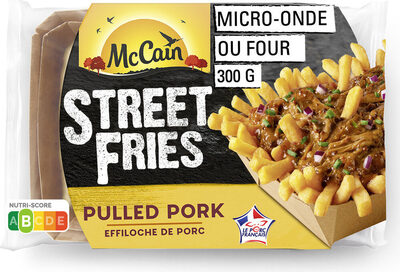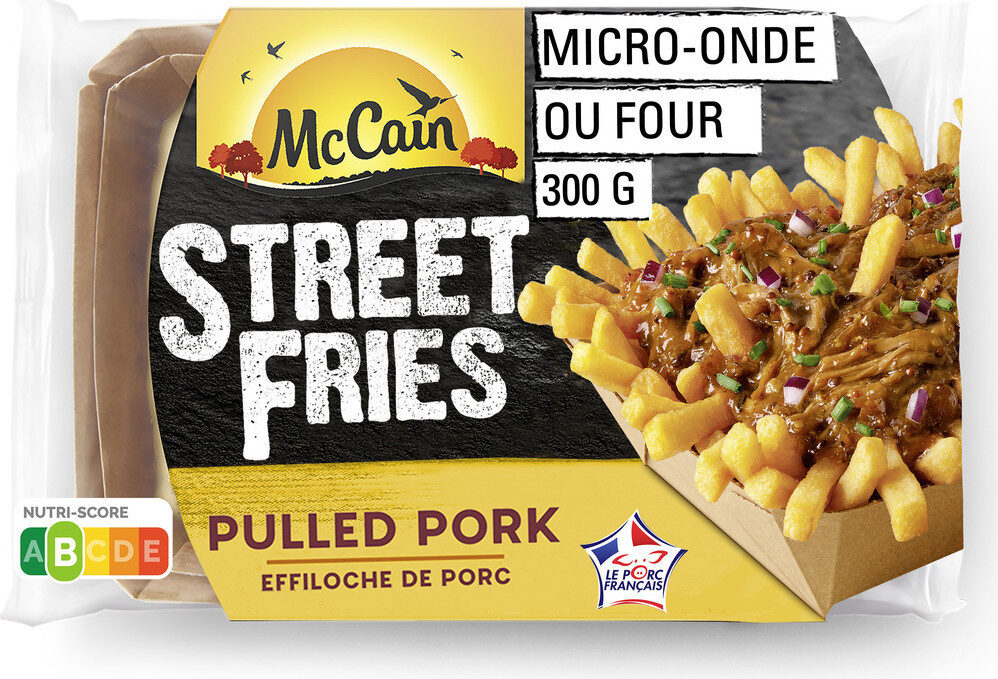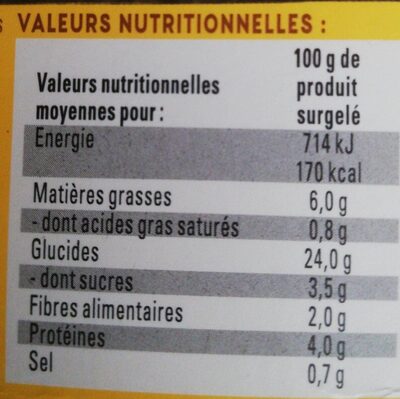Street fries pulled pork - MCCAINE - 300 g
This product page is not complete. You can help to complete it by editing it and adding more data from the photos we have, or by taking more photos using the app for Android or iPhone/iPad. Thank you!
×
Barcode: 8710438121797 (EAN / EAN-13)
Quantity: 300 g
Brands: MCCAINE
Categories: Meats and their products, Meals, Meals with meat, Pork meals
Labels, certifications, awards: French meat, French pork, Nutriscore, Nutriscore Grade B
Origin of ingredients: France
Manufacturing or processing places: Harnes France
Traceability code: FR 22.182.001 CE - Plélo (Côtes-d'Armor, France)
Link to the product page on the official site of the producer: https://www.mccain.fr/street-fries/stree...
Stores: carrefour.fr, Auchan, Leclerc
Matching with your preferences
Report a problem
Data sources
Product added on by kiliweb
Last edit of product page on by quechoisir.
Product page also edited by charlesnepote, driveoff, openfoodfacts-contributors, roboto-app, toma-stupar, yuka.sY2b0xO6T85zoF3NwEKvlhFEfOWHqxPibj7umG6GmfGjHLG4OspR5I3gMas, yuka.sY2b0xO6T85zoF3NwEKvlk9gDfHyoS3rNyzVomKZyNWrKae3Wc9s64P9Cqs, yuka.sY2b0xO6T85zoF3NwEKvlmZ7aNnXs2j_MUDttlTU39zRK8exOdFZuLihCKs.












